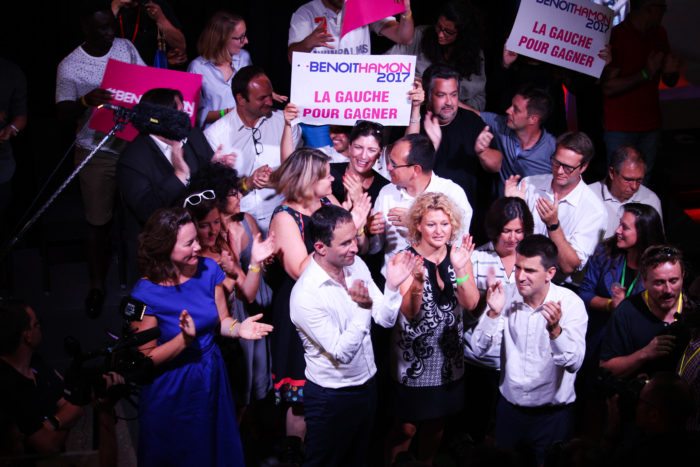French Presidential Elections: voters head to polls for first round
Voters in France and abroad are heading to the polls today to elect the republic’s new president as the first round of voting begins.
An unconventional campaign has left four frontrunners vying for the presidency: the National Front (FN) leader Marine Le Pen, the anti-establishment banker and former finance minister Emmanuel Macron, the scandal-hit former Prime Minister François Fillon and far-left firebrand Jean-Luc Mélenchon.
The Socialist Party (PS) candidate is Benoît Hamon, following outgoing President François Hollande’s decision to not seek re-election for a second term after a remarkably unpopular presidency. However, a surprise surge in support for Mélenchon’s programme of environmental investment and constitutional reform has divided the vote, leaving Hamon trailing over 10% behind the other candidates in recent polls.
Despite an highly-publicised inquiry into the embezzlement of public funds, Fillon is representing the Republicans on a Catholic conservative platform looking to remove wealth tax and support Russia and the Syrian government in overcoming IS in the Middle East.
Meanwhile, centrist Macron is leading the polls with a 50 billion euro public investment plan, cuts to corporate tax and a projected 60 billion savings in public spending. Hamon has proposed a basic income plan boosting low earner salaries alongside an ambitious social security and environmental programme, taxes on robotically-generated wealth and the legalisation of cannabis.
Le Pen has promised an EU referendum, an immediate suspension of immigration and the automatic expulsion of illegal immigrants, alongside the closing down of “extremist” mosques and prioritising French nationals for social housing.
There are an additional six candidates, half of whom are calling to leave the EU and abandon the euro.

Image: Wikimedia / Marion Germa
If a candidate wins an outright majority, they will automatically become president. However, no candidate has ever achieved this, and with four candidates competing neck to neck, polls suggest that it is unlikely to happen this year.
The latest polls put Macron on 23% support, one point ahead of Le Pen. Fillon is in third place with 20%, closely followed by Mélenchon on 19%.
This election has serious global significance. Both Le Pen and Mélenchon represent political extremes in France, and their victory would see France become the next major country to deal a blow to so-called establishment politics, after the UK Brexit vote and the US election of President Donald Trump. It would also place a question mark over France’s membership of the EU in its present form, as both candidates are seeking renegotiations with Brussels.
Macron is the current favourite to win, but Thursday’s shooting of a police officer in a terror attack on Paris’ Champs Élysées is expected to provide a boost to Le Pen, who has made national security a key part of her campaign.
Donald Trump also speculated that the attack would help Le Pen, because she is “strongest on borders, and she’s the strongest on what’s been going on in France.”
If no candidate wins more than 50% of the vote, there will be a run-off between the top two candidates. This will take place on May 7, and the candidate with the majority of votes will assume office.
Only one FN presidential candidate has ever made it to the second round – Jean-Marie Le Pen in 2002, when he lost to the incumbent Jacques Chirac, winning 17.8% of the vote to Chirac’s 82.2%. The polls suggest that his daughter will make it to the second round in this election, where she will be defeated by either Macron or Fillon.

Image: Wikimedia / Thermidorimage
Second-year Management student Alix Ditisheim commented: “I hope Marine le Pen will not be elected and think many French people will not vote this year because they couldn’t identify with any of the candidates.”
French studies and Erasmus finalist Hedi Mehrez added: “Le Pen knows how to convince her party with extremist statements. However, she is still quite aggressive during debates which reveals a lack of confidence in her campaign.”
“In the first debate, she lied about unemployment numbers with false estimations, and was later targeted by Workers’ Struggle candidate Nathalie Arthaud for her discriminatory confusion of immigrants, terrorists and Muslims.”
“Macron’s alternative party mixes the best ideas from both right and left wings. Unlike Le Pen, he doesn’t want to leave the EU and thinks a Frexit would push our country into isolation.”
Third-year year Maths and Physics student Edpardo Barp said: “I can’t really talk about the election without mentioning the amount of misinformation that was being spread, although it was much more insidious and hard to check than that of Brexit or the Trump election for example, where many claims could easily be denied or were just complete populist lies.”
“It’s also very interesting that neither of the two main parties, the equivalent of Labour and Tories, are expected to follow to the second round, and especially interesting that the far left, usually blocked by the normal left, was able to break through because of a very bad candidate for the PS.”
“I will personally be voting Macron, I think he’s extremely promising with a real understanding of finance, a realistic, not fairy tale project with which I greatly agree, and is generally very smart.”
The presidential election will be followed by legislative elections on June 11 and 18, in which voters will choose their members of Parliament (or députés). The French president holds significant power, but needs parliamentary approval to enact a legislative agenda. If voters choose a parliament in opposition to the president, it will be harder for the president to govern.
The first exit polls are expected at 7pm GMT.

Comments